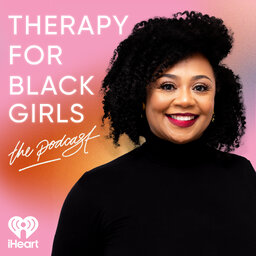Session 54: Shedding Your Superwoman Status
For this episode I am joined by Licensed Professional Counselor & Nationally Certified Counselor, Spirit. Spirit and I discussed the key characteristics of the Black Superwoman, how this construct was developed, how buying into this narrative impacts our mental health, and strategies for how you can gradually take that cape off.
Learn more about your ad-choices at https://www.iheartpodcastnetwork.com
In 1 playlist(s)
Therapy for Black Girls
The Therapy for Black Girls podcast is a weekly conversation with Dr. Joy Harden Bradford, a license…Social links
Follow podcast
Recent clips

Session 453: What Speech-Language Pathologists Actually Do?
47:17

Session 452: Is Having a Boyfriend Embarrassing Now? Romance, Identity & Online Culture
51:20

Session 451: Student Loan Forgiveness & Reclassifying Degrees
48:49
 Therapy for Black Girls
Therapy for Black Girls